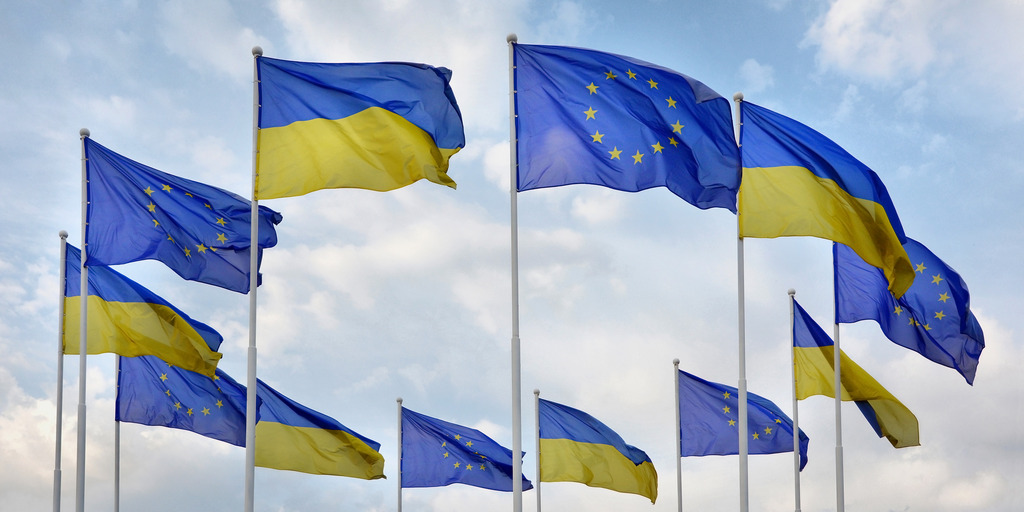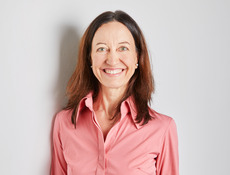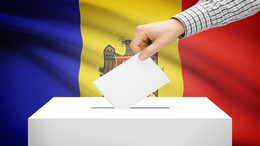For the third time since their country became independent, Ukrainians voted the incumbent out of office. The hard-fought campaign, however, should not hide the fact that the country does not yet have a functioning pluralist political system. Five years after the caesura of the Euromaidan protests, Ukrainians did not truly have a choice between “old” and “new” candidates, even if surveys have long shown that people do indeed want new government representatives. The latter are still rare in national politics, or they have no power. Popular TV channels owned by oligarchs and an electoral system that allows millions in donations to influence political processes in a nontransparent manner make it difficult for candidates to become known and gain office.

© shutterstock / Spok83
Ukraine as a European oasis of prosperity – Vasyl Holoborodko’s vision proved convincing
More than two-thirds of Ukraine’s voters believe Volodymyr Zelensky can put the country squarely on the path to becoming a modern state – just like Vasyl Holoborodko, the admirable history teacher and recently elected president in Zelensky’s TV series “Servant of the People” did.
Vote-driven revolution
Zelensky enjoys the access and presence first-time politicians rarely have, reaching voters throughout the country thanks to his TV show. And as a successful, wealthy TV producer, he was able to launch a professional campaign on YouTube and Instagram that motivated young people to go to the polls. Thus, he promptly disrupted traditional voting patterns, winning in all regions except Lviv.
Another reason for his victory is that this political novice, popularly known as “Ze,” has taken a stance against “uneducated” patriotism, something others used to open up a second front calling for "security over liberty" (Angelina Kariakina). The goal: justifying their own transgressions. The narrative: Everyone should support the government; criticism only weakens Ukraine and plays into the hands of the Kremlin. Although the latter argument is unfortunately true, it is not a reason for ignoring shortcomings. Ukrainian journalists reporting from areas occupied by Russia who called attention to Ukrainian misconduct as well as Russian aggression were dismissed as biased against the government or even dangerous – unpatriotic, in other words. This attitude culminated in the election slogan “Army, Language, Faith.” Much to their credit, Ukraine’s citizens did not fall for the ruse. And if making fun of Ukraine’s language and culture did not hurt Zelensky at the polls, it is most likely because he is willing to mock himself: When a politician questioned his patriotism, he threatened to sick his Jewish mother on him.
Strong mandate based on high expectations
The vast majority of the country is in favor of Euro-Atlantic integration, something that can be seen in the Flag of Europe which often flies next to Ukraine’s own. The EU is considered an anchor against the undertow of corruption and poor governance, which Ukrainians feel is the nation’s greatest challenge alongside the war.
Neither accession to the EU nor NATO membership is a realistic possibility during Zelensky’s coming term. One reason is the current state of the EU. The lack of sincerity exhibited by some politicians, from the EU and Ukraine likewise, is burdening relations between the two, even if Berlin and Brussels are doing quite a bit for Kyiv this side of accession. Reforms have been successful when they do not disturb the interests of powerful elites. Yet the exceptions in the banking, energy and health-care sectors show that the pressure applied by Ukraine’s civil society and by international partners is working.
"Poverty and greed"
The unequivocal election result is, nevertheless, a difficult mandate. Voters’ expectations are diverse: There are differences between Kyiv and the countryside, between those who are doing well and those who are barely making ends meet. Some point out that Ukraine as a nation has survived under the most difficult conditions, that sustainable reforms take time. Others are disappointed that special interests continue to define the country’s politics, that an economic recovery is still nowhere in sight and that those who do wrong are not held accountable. The public gets riled when the privileged make a show of their advantageous position, for example when the former head of the State Fiscal Service, Roman Nasirov, who was suspended on suspicion of corruption, makes a – futile – bid for the presidency, a move that costs $80,000.
Conflicting interests have often brought Ukraine to a standstill
The first challenge for the new president will be the country’s parliament, the Rada. Ukraine’s semi-presidential system often requires the approval of both the president and the parliament or prime minister. For example, the president appoints the governors, who play an important role running the country’s regions, but the prime minister must concur as well.
After the electoral commission finally announced the official results on May 1, having allowed itself ample time, the Rada has 30 days to set the date for Zelensky’s inauguration. Then he can announce his choices for his presidential administration, the National Security and Defense Council, the National Bank and the Constitutional Court, as well as the Chief of the General Staff. He can nominate the defense minister, the foreign minister, the head of the still very powerful Security Service, and the attorney general, but these positions must be confirmed by the Rada.
Once the new Rada has been elected, a coalition must be created that confirms the prime minister, who may be put forward by the president, with a simple majority. The current prime minister, Volodymyr Groysman, distanced himself from Poroshenko long ago. Like other influential politicians, he must decide whether to found his own party or use other means to remain a political player.
Zelensky need not feel threatened by current attempts to quickly pass laws that would curtail his powers. After all, the election results have also sent a clear message to the Rada, whose approval ratings are low to begin with. It is important for Zelensky to remain respectable until the next parliamentary elections, regardless of whether there will be early or regular elections, and then gain representatives committed to supporting him.
His party, called Servant of the People after his TV show, is currently polling at over 20 percent. That is approximately the level that the president’s party reached in the proportional vote in 2014. It only became the largest parliamentary group because its candidates won most of the districts using first-past-the-post voting, from which the other 50 percent of the representatives are elected. Zelensky, too, can use money and influence to win over parliamentary deputies. Poroshenko never delivered on his 2014 promise to change the electoral system so that it is purely proportional and offers open party lists – a system that would have allowed voters to choose specific representatives. Partners wanting to help Ukraine implement reform should learn from this and remind Zelensky well in advance of the 2024 parliamentary elections of his own promises to rewrite the country’s electoral law.
The unpredictable president
Domestically, Zelensky will be judged by the fight he wages against corruption and whether he gets the economy to rebound. That only makes sense, since secure property rights are crucial for the investments, both domestic and foreign, that the economy needs. The all-important question is whether Zelensky will stand up for what he has promised: transparency, fairness, access and participation, rule of law and legal reforms, the dismantling of monopolies both political and economic. His ties to the shady oligarch Ihor Kolomoisky cast doubt on whether he is truly independent. The launch of his party was hardly democratic, even though it would have been easy enough for his team to collect 10,000 signatures. “Ze” communicates digitally with the country’s citizens, using social media to encourage them to participate, so far without obligation on his part. Thus, his party remains a means to an end for now, not unlike the oligarchs’ parties founded in 2014.
No one in the Kremlin is laughing at Zelensky
Well known in Russia as an actor, Zelensky is a challenge for Moscow. Russians follow his appearances in social media with envious interest. Even before election night was over, he verbalized the Kremlin’s worst nightmare, proclaiming, “I am not yet president, so as a citizen I can turn to all countries of the former USSR and say: Anything is possible!”
That a Jew became president of Ukraine in a peaceful transition of power contradicts the bogeyman image advanced by Moscow of Ukraine being a fascist stronghold and a failed state. The Ukrainian nation is important to the new president, and Zelensky aptly described Putin’s aggressive gesture – offering Ukrainians Russian passports – as an invitation to join a country in bondage.
Defense expert Ivan Aparshyn’s inclusion in the Zelensky team is a move that might signal further professionalization of the Ukrainian army and greater transparency in the defense sector in general and the murky state-owned conglomerate UkrOboronProm in particular.
For the most part, Ukrainians must overcome their domestic political challenges on their own. In terms of the war that the Kremlin is waging against Ukraine, however, there is more that Europe can do. For a start, it could clearly call out Russia for the key role it is playing in the conflict. It is nothing short of perfidious for Putin’s spokesman to cast doubt on the legitimacy of the presidential election because three million Ukrainians living in areas occupied by pro-Russian separatists were unable to vote.

![[Translate to English:] Menschen am Tisch](/fileadmin/files/_processed_/7/5/csm_514562722IMG_0054_ecd98f6101.jpg)

![[Translate to English:] Teasertext einfügen](/fileadmin/files/_processed_/0/b/csm_182954355AdobeStock_71803618_KONZERN_bearST_EZ_6dfcef2783.jpg)


